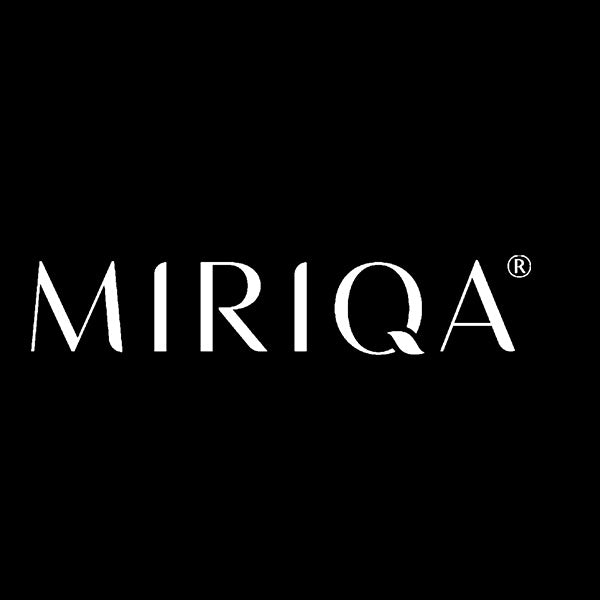Understanding Skin Cancer Symptoms: Early Signs You Shouldn't Ignore

Did you know that skin cancer is one of the most common cancers in Singapore, with rising incidence each year? Despite its prevalence, many cases go undetected until they have progressed, underscoring the critical importance of early detection in skin cancer treatment. As we delve into the symptoms of skin cancer and the role of supplements in skin health, discover how you can take proactive steps to safeguard your skin and overall well-being.
What is Skin Cancer?
Skin cancer is a type of cancer that originates in the cells of the epidermis, the outermost layer of the skin. It occurs when there is an uncontrolled growth of abnormal skin cells, which can form tumours and potentially spread to other parts of the body if not treated. Though anyone can get skin cancer, some risk factors include a lighter natural skin colour, skin with freckles, a large number of moles, history of sunburns, a family history of skin cancer, and older age.
Skin cancer is broadly categorised into two groups: melanoma and non-melanoma skin cancer.
Non-melanoma
Non-melanoma skin cancer is the 6th most common cancer in males and the 7th most common cancer among females in Singapore. Most non-melanoma skin cancers are caused by sun exposure, where UV light damages the DNA in the skin cells. The two main types of non-melanoma skin cancer are:
Basal cell carcinoma (BCC)
BCC is the most common form of skin cancer, accounting for 80% of all skin cancer cases. It develops from basal cells, which are found in the deepest part of the epidermis. BCC typically develop on sun-exposed areas of the body, such as the face, neck, and arms, due to prolonged exposure to UV radiation from the sun or tanning beds.
Squamous cell carcinoma (SCC)
SCC arises from the squamous cells that make up the middle and outer layers of the skin. This type of skin cancer also often develops on sun-exposed areas, such as the face, ears, neck, lips and backs of the hands. However, it can also occur in scars, burns, or areas of chronic inflammation. Unlike BCC, SCC has a higher tendency to grow more quickly and can potentially spread to other parts of the body if not treated promptly.
Melanoma
Melanoma skin cancer refers to the malignant tumour of the melanocytes which behaves more aggressively than non-melanoma skin cancers. It can develop anywhere on the body, in otherwise normal skin or in an existing mole that turns cancerous. The primary cause of melanoma is exposure to UV radiation from the sun and tanning beds. UV radiation damages the DNA in melanocytes, leading to mutations that can result in uncontrolled cell growth. In Singapore, the incidence of melanoma skin cancer is relatively low with 0.5 cases per 100,000 persons.
Common Skin Cancer Symptoms
Common symptoms of skin cancer include a sore or area of skin that:
- Does not heal within 4 weeks
- New growths
- Changes to an existing mole or freckle
Unsure of the difference between the different types of skin cancer? Here are some characteristics of each type of skin cancer:

Basal cell carcinoma Flat, flesh-coloured or red patches, pink growths | Squamous cell carcinoma Firm red nodule, scaly red patches, open sores, wartlike | Melanoma Asymmetric, border irregularity, colour changes, diameter > 6mm, evolving moles |
Being vigilant and recognising the symptoms of skin cancer is the first step in combating this disease. Whether it is the less aggressive basal cell carcinoma, the potentially spreading squamous cell carcinoma, or the highly dangerous melanoma, early identification can save lives and reduce the need for invasive treatments.
Why Early Detection is Crucial

Early detection is crucial as it significantly enhances survival rates. When skin cancer is identified at an early stage, it is typically less aggressive, easier to treat, and less likely to have spread to other parts of the body. Studies have shown that the five-year survival for melanoma is about 99% when detected early. This drastically decreases to around 25% if the cancer has spread to distant organs.
Moreover, early detection allows for less invasive treatment options, reduced medical costs, and a better overall prognosis. In the initial stages, skin cancers can often be removed through simple surgical procedures, such as excision, which involves cutting out the cancerous tissue along with a small margin of healthy tissue. In contrast, advanced skin cancers may require more aggressive treatments, including extensive surgery, radiation therapy, or even chemotherapy. Therefore, understanding the importance of early detection cannot be overstated, as it plays a vital role in improving your skin health and ensuring more effective management.
Self-Examination Tips
Knowing your own skin is important to finding skin cancer early. Performing monthly skin-examination is crucial for detecting potential signs of skin cancer.
- Start by examining your entire body, in front of a full-length mirror. Use a hand-held mirror or ask a family member for assistance for hard-to-see areas like your back and scalp. Take note of any new moles or spots, as well as changes in existing ones, such as size, shape, or colour.
- Maintain a record of these observations. These can help track any developments over time.
If you notice any suspicious changes, such as sores that would not heal, unusual growths, or alterations in moles, it is imperative to consult a dermatologist promptly.
The Role of Skin Supplements in Skin Health
Uncover how MIRIQA® Professional Skin Nutrition Supplement and MIRIQA® Skin Extra Strength Professional Nutrition Supplement can transform your skin health journey. The role of these award-winning supplements in skin health is multifaceted, encompassing various benefits that contribute to overall vitality, while protecting it from the harmful UV rays.
MIRIQA® Professional Skin Nutrition Supplement

The supplement features colourless carotenoids from white tomatoes, olives, and L-cysteine, all these clinically proven super antioxidants to protect your skin against UV damage from the sun:
- Colourless Carotenoids from White Tomatoes: These potent antioxidants protect the skin from UV damage, thereby reducing oxidative stress on the skin cells by neutralising free radicals generated by UV radiation.
- Olives (Hydroxytyrosol): This ingredient is known for its powerful antioxidant properties that help protect cells from oxidative damage caused by free radicals. It also possesses anti-inflammatory properties, which can mitigate chronic inflammation associated with skin cancer progression. It also aids in repairing damaged skin cells, supporting the skin’s natural defences against cancerous changes.
- L-Cysteine: An amino acid that plays a crucial role in skin health, L-Cysteine is a precursor to glutathione, a powerful antioxidant present in cells that helps neutralise toxins and free radicals. This antioxidant activity may enhance cellular protection against oxidative stress linked to skin cancer. L-Cysteine's role in melanin production regulation can also contribute to managing pigmentation disorders, potentially reducing the risk of certain types of skin cancer associated with excessive melanin production.
MIRIQA® Skin Extra Strength Professional Nutrition Supplement

Discover the transformative power of MIRIQA® Skin Extra Strength, an oral sunblock with skin lightening properties, designed to protect and rejuvenate your skin from within.
Like the MIRIQA® Professional Skin Nutrition Supplement, MIRIQA® Skin Extra Strength supports skin health, improves elasticity and promotes youthful skin. It has the addition of Polypodium Leucotomos (Tropical fern leaves), which is known for its excellent sun protection power, boasting powerful antioxidant properties that works as a sun shield to protect the skin from UV rays. It also acts as an oral sunscreen, while helping to lighten pigmentation and brighten overall skin tone, giving your skin a more youthful appearance.
Preventive Measures for Skin Cancer
Most skin cancers are preventable with these prevention tips:
- Wear sunscreen year-round. Apply a generous amount of sunscreen with a broad spectrum SPF of 30 or higher, even on cloudy days, and reapply every two hours. Consider MIRIQA® Professional Skin Nutrition Supplement and MIRIQA® Skin Extra Strength Professional Nutrition Supplement, for additional protection against UV rays.
- Wear protective clothing and hats. It is important to cover your skin with dark or bright, tightly woven clothing that covers your arms and legs, and a broad-brimmed hat to protect your face.
- Avoid peak sun hours. Excessive exposure to UV rays in sunlight increases the risk of developing skin cancer. With Singapore’s UV index hitting extreme levels due to its proximity to the equator, avoid being outdoors from 10am to 4pm.
- Maintain a balanced diet. Research shows that adding vitamin C (e.g. citrus fruits, strawberries, leafy greens), vitamin E (e.g. milk, cheese), beta-carotene (e.g. orange fruits and vegetables such as carrots, mangoes) and omega-3 fatty acids (e.g. fatty fish like salmon) help to lower your skin cancer risk
Conclusion
Skin cancer is a prevalent and serious condition that can be effectively managed with early detection and preventive measures. Recognising the symptoms for different types of skin cancer is crucial for timely intervention. Empower yourself by performing monthly skin self-examinations and make sun protection a daily habit. If you suspect you might have skin cancer or are unsure, schedule check-ups with a dermatologist for professional monitoring and early treatment of any potential issues.
Ready to take charge of your skin’s future? Taking these simple steps can make a significant difference in your skin health and overall-wellbeing. Visit our website for more information. Stay vigilant and protected with MIRIQA today.





